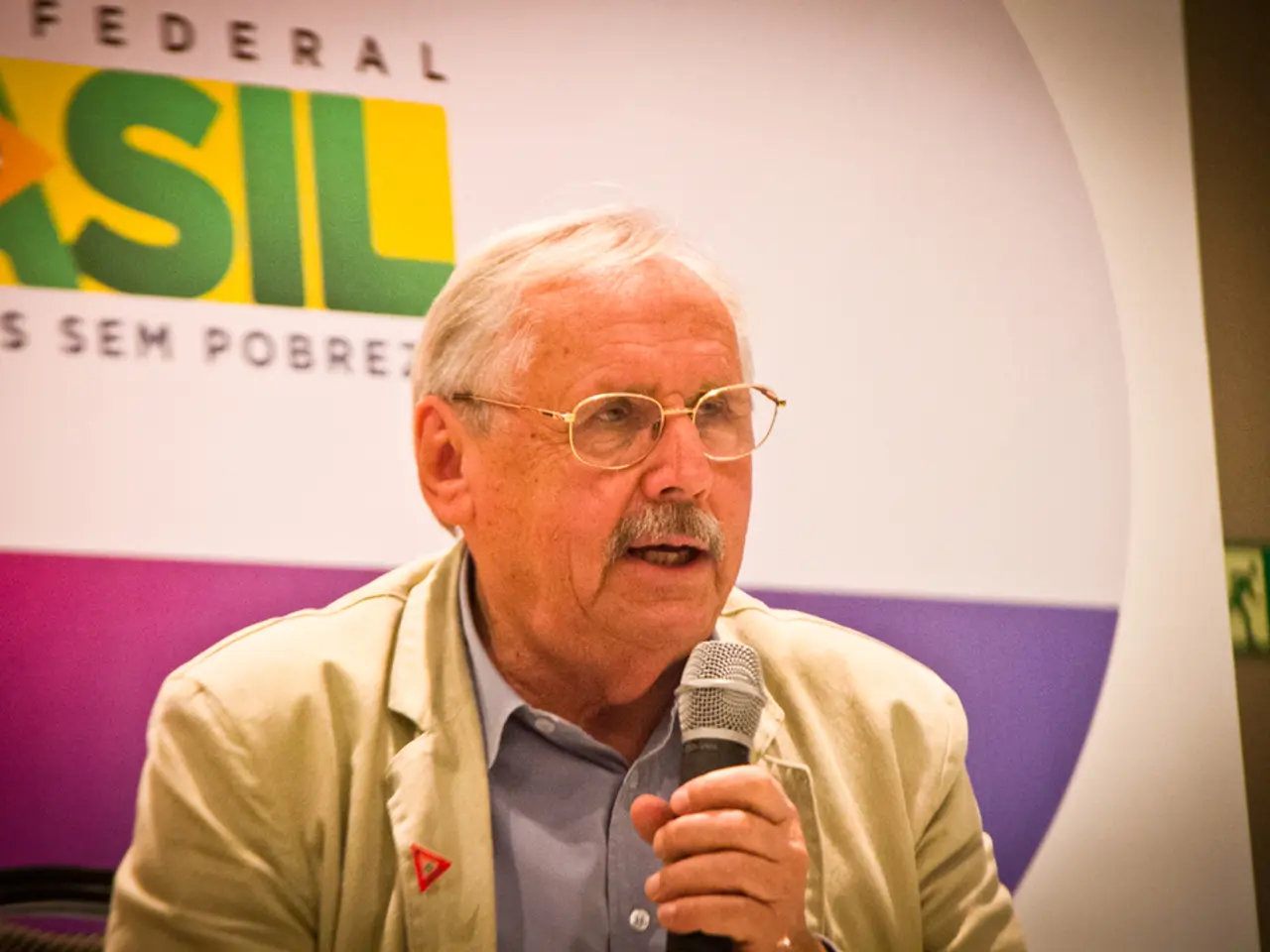Ireland's Prime Minister advocates for Ireland to take the forefront in shaping maritime policy.
🌊🇮🇪 Ireland Aims High at UN Ocean Conference, Eyes Leadership in Global Maritime Policy 🇫🇷🌊
Taoiseach Micheal Martin has set his sights on making Ireland a frontrunner in global maritime policy, as he arrives in France for the United Nations Ocean Conference (UNOC3), taking place in Nice until Friday.
This conference, co-hosted by France and Costa Rica, is a significant event ten years after the Paris Agreement, as the world's oceans take center stage. With the vivid backdrop of the Paris Agreement's ambitious goals, the focus remains on limiting global warming.
The UNOC3, which follows previous conferences in New York in 2017 and Lisbon in 2022, brings world leaders, UN bodies, climate activists, scientists, businesses, and coastal communities together. Their shared goal is to ensure the sustainability and resilience of the world's oceans.
Tonight, the Taoiseach will attend the inauguration of the conference's Green Zone, hosted by French President Emmanuel Macron. Over 60 world leaders, including themselves, will gather for this momentous occasion.
On Wednesday, Mr. Martin will join forces with European Commission President Ursula von der Leyen and Mr. Macron at the launch of the European Ocean Pact. This ambitious initiative seeks to bind together various EU ocean policies under one umbrella, ultimately aiding member states in protecting and restoring marine habitats.
The pact prioritizes areas such as sustainable economic activity in coastal communities, the development of renewable energies, and combatting illegal fishing. In addition, it proposes a new European law on the oceans by 2027, which will include legislation on combating illegal fishing.
On the same day, Mr. Martin will deliver a statement on Ireland's behalf at the conference's main plenary session. He emphasized that the pact will prioritize these areas, along with climate and biodiversity, and will enable further funding.
The Taoiseach has expressed enthusiasm about the multilateral participation at the conference, stating that he hopes there will be a consensus to establish a framework for ocean protection.
However, many marine scientists warn that the world's oceans are nearing a point of no return. Decades of plastic pollution, overfishing, seabed mining, coral bleaching, and climate change pose threats to marine species and the livelihoods of coastal communities, particularly those in the Global South.
The oceans produce half of the globe's oxygen, and over 3 billion people rely on marine biodiversity to survive. Unfortunately, up to 12 million metric tonnes of plastics enter the ocean every year, equivalent to a bin truck every minute[4]. Over 60% of marine ecosystems are already degraded, and fishing stocks have declined since the 1970s[3].
Rising sea temperatures also pose dangers for maritime habitats. In April, global sea temperatures reached their second-highest levels ever. While some of the worst cases of coral bleaching are currently affecting marine habitats in the Caribbean, the Indian Ocean, and parts of the Pacific, the impacts are far-reaching[3].
Li Junhua, UN Under-Secretary-General for Economic and Social Affairs, acting as Secretary-General of the conference, describes the world's oceans as facing an "unprecedented crisis." While there have been several non-binding declarations to protect ocean life, a single legal agreement to address these matters remains elusive[1].
A treaty on limiting marine plastic pollution is still under negotiation, while a World Trade Organization agreement to preserve fish stocks has yet to be fully implemented[1]. However, the High Seas Treaty, aimed at protecting marine life in international waters, has gained significant momentum in recent months[2].
As of early June 2025, over 28 countries have ratified the High Seas Treaty, including the European Union (EU) and six of its member states—Cyprus, Finland, Hungary, Latvia, Portugal, and Slovenia—following the earlier ratification by France and Spain[2]. This collective ratification marks the largest joint ratification by a group of countries to date.
Representatives of national delegations that have already backed the treaty hope to attract enough new signatories in Nice for it to enter into force[3]. Over the next five days in Nice, hundreds of new pledges are expected from governments, aiming to adopt the Nice Ocean Action Plan—a political declaration aimed at accelerating action on the conservation and sustainable use of oceans[5].
During his stay in Nice, Mr. Martin will hold bilateral meetings with the King of Jordan, Abdullah II bin Al-Hussein, Prime Minister of Barbados Mia Mottley, and former US Secretary of State John Kerry, who also held a key climate portfolio during the Biden administration[5].
- Recognizing the critical role of environmental science in addressing climate-change, Taoiseach Micheal Martin plans to use the UNOC3 platform to discuss policies that prioritize the sustainability and resilience of the world's oceans.
- In light of the looming threats to marine biodiversity due to factors such as plastic pollution, overfishing, and climate change, the Taoiseach's participation at the UNOC3 could potentially lead to stronger policy-and-legislation in ocean conservation and restoration.
- As part of Ireland's efforts to take leadership in global maritime policy, the Taoiseach's dialogues at the UNOC3 are expected to focus on general-news issues like illegal fishing, renewable energies, and the development of sustainable economic activities within coastal communities.








